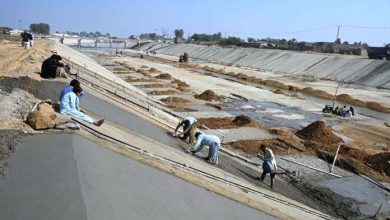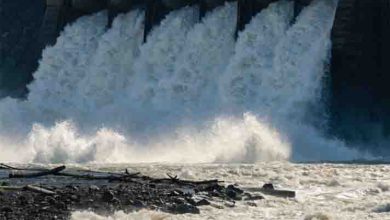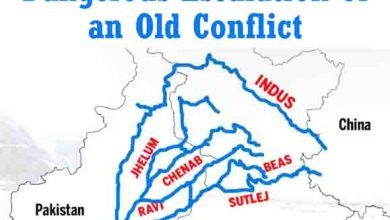Critical Seminar on Indus Waters Treaty Crisis to Shape Pakistan’s Water Future
A high-level seminar on the Indus Waters Treaty crisis will be held at COMSTECH on June 4. Experts will explore Pakistan’s strategic water security amid climate and geopolitical stress.
The Indus Waters Treaty—a landmark water-sharing agreement between Pakistan and India—has come under severe strain following India’s recent unilateral suspension of the treaty in May 2025. In response to this grave regional challenge, a high-level international seminar titled “Water Crisis and the Indus Waters Treaty” is scheduled to be held on June 4, 2025, at the COMSTECH Secretariat Auditorium, Islamabad.
This urgent and strategic event will address the multidimensional implications of the treaty’s suspension and outline a sustainable way forward for Pakistan’s water governance and diplomatic posture.
Why the Indus Waters Treaty Crisis Matters Now
The Indus Waters Treaty, signed in 1960, has been a bedrock of peaceful transboundary water sharing between two nuclear-armed states. India’s abrupt decision to suspend the treaty in May 2025, however, has escalated regional tensions and increased the risk of hydro-political conflict.
This makes the upcoming seminar at COMSTECH not just timely but essential. It comes at a pivotal moment when water security, climate change, and geopolitical instability are converging to challenge Pakistan’s national resilience.
Learn more about the history of the Indus Waters Treaty on Britannica
Seminar Details: Date, Venue, and Organizers
The seminar, to be held on June 4, is being jointly organized by:
- OIC-COMSTECH (Standing Committee on Scientific and Technological Cooperation)
- Karachi Council on Foreign Relations (KCFR)
- Hisaar Foundation
- Panjwani-Hisaar Water Institute, NED University, Karachi
📍 Venue: COMSTECH Secretariat Auditorium, Islamabad
🕘 Date: June 4, 2025
The event is part of a broader strategic initiative by COMSTECH to promote science-based water diplomacy within the OIC and South Asian regions.
Distinguished Speakers and Their Expertise
This seminar will feature an elite lineup of thought leaders, diplomats, scientists, and environmentalists, including:
- Ms. Nadira Panjwani – Chairperson, KCFR
- Prof. Dr. M. Iqbal Choudhary – Coordinator General, OIC-COMSTECH
- Senator Mushahid Hussain Syed – Senior Parliamentarian and Security Analyst
- Mr. Ikram Sehgal – Renowned Defense and Strategic Affairs Expert
- Ms. Simi Kamal – Founder & Chairperson, Hisaar Foundation
- Mr. Ali Tauqeer Sheikh – International Climate Finance Expert
- Mr. Rafay Alam – Leading Environmental Legal Expert
- Mr. Zohair Ashir – Executive Board Member, Panjwani-Hisaar Water Institute
This interdisciplinary panel ensures a 360-degree analysis of the Indus Waters Treaty crisis, covering environmental, legal, diplomatic, and national security aspects.
Key Themes: Water Diplomacy, Climate Security, and Strategic Resilience
1. Geopolitical Consequences of Treaty Suspension
The event will scrutinize the regional security fallout following India’s move, with emphasis on diplomatic counter-strategies and legal recourse available to Pakistan.
2. Hydro-Diplomacy and Legal Frameworks
With contributions from legal experts like Rafay Alam, the seminar will explore the international legal implications and potential avenues for arbitration under the World Bank and United Nations frameworks.
3. Climate Change and Water Scarcity
Climate scientists and policy analysts will evaluate how rising temperatures and erratic monsoons are exacerbating water stress across the Indus basin.
4. National Security and Strategic Infrastructure
Security experts will deliberate on the critical vulnerability of Pakistan’s water infrastructure and the need for proactive defense planning against water aggression.
COMSTECH’s Vision for Transboundary Water Management
The event is not merely reactive—it is rooted in a progressive and scientific vision to reform and fortify Pakistan’s water governance system.
COMSTECH’s larger goal is to:
- Promote multilateral cooperation on water issues among OIC member states
- Encourage science-driven diplomacy through policy innovation
- Build adaptive capacities in water-stressed regions
- Facilitate data-sharing and technological collaboration
By integrating research, regional partnerships, and policy innovation, COMSTECH aims to transform this crisis into an opportunity for regional water resilience.
Conclusion: Defining a Water-Secure Future for Pakistan
The Indus Waters Treaty crisis has revealed deep vulnerabilities in Pakistan’s water security architecture. However, it also presents a critical inflection point—a chance for the nation to recalibrate its hydro-diplomacy, invest in climate-resilient infrastructure, and forge stronger international alliances on transboundary water management.
The June 4 seminar at COMSTECH promises to be a catalyst for change, uniting key stakeholders to envision and implement a secure, sustainable, and sovereign water future for Pakistan.
Internal Links:
- 🔗 Pakistan’s Climate Diplomacy: Moving Beyond Rhetoric
- 🔗 Water Scarcity in Pakistan: Challenges and Solutions







